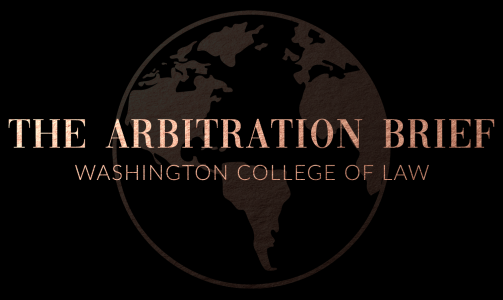By: Savannah Kelly, Senior Staffer
Investors have the right to protect their investments just as host states have the right to protect public interests–otherwise recognized as public interest regulation. The balance between the rights of investors and that of states skews off-kilter when arbitral proceedings whittle away or strip entirely the regulatory autonomy of states. Public interest regulation, such as environmental protection, remains critical as it holds states simultaneously accountable to, inter alia, their constituents as well as international norms and conventions. A trade agreement provision that infringes upon a state’s regulatory liberty may force the state to navigate a complex legal landscape in which commitments to domestic and international audiences directly conflict with their need to adhere to the provision. Such a quandary necessitates granting states heightened deference regarding public interest regulations to inhibit future conflicts between states’ legal duties and trade agreement obligations.
The International Centre for Settlement of Investment Disputes (“ICSID”) arbitration proceeding Michael Anthony Lee-Chin v. Dominican Republic involved an investor, Michael Anthony Lee-Chin (“Lee-Chin”), and the Dominican Republic. Lee-Chin, via his company Lajun Corporation S.R.L., contracted with the Municipality of Santo Domingo Norte to manage the Duquesa Landfill in 2007. The Dominican Republic breached this agreement when it allegedly seized control of the Duquesa Landfill ten years later. Though the Dominican Republic cited environmental concerns as its rationale for the shift in management, Lee-Chin contended that the state’s action constituted an improper seizure when he initiated arbitral proceedings in 2018 against the state under the Caribbean Community and Common Market (“CARICOM”) -Dominican Republic Free Trade Agreement (“FTA”). In 2023, an ICSID Tribunal found that the Dominican Republic breached its treaty obligation by interfering with Lee-Chin’s exclusive management of the Duquesa Landfill. More specifically, the Tribunal stated that the Dominican Republic “executed an indirect creeping expropriation of Claimant’s [Lee-Chin’s] investment” in addition to other treaty violations. Accordingly, the Tribunal awarded Lee-Chin $43,590,090 plus interest.

The Tribunal’s analysis in Michael Anthony Lee-Chin v. Dominican Republic failed to adequately remedy the clear tension between the state’s public purpose and treaty adherence. The Tribunal justified its award by stating that while the Dominican Republic’s “intervention…may well have been justified, inter alia, by environmental considerations,” the Tribunal was still not “persuaded that the current circumstances in the landfill could be used to show that the State’s actions served a public purpose.” The core issue of the case, however, occurred long before the ICSID award. The CARICOM-Dominican Republic FTA needed more public interest exceptions incorporated into its language to better protect the Dominican Republic’s regulatory liberty. Because the FTA lacked sufficient public interest exceptions, the Tribunal drew its own legal conclusions regarding the expropriation rather than defer to the Dominican Republic’s Ministry of the Environment and the Ministry of Public Health declaration of an “environmental and health emergency at the Duquesa Landfill.” Public interest exceptions are a foundational feature in modern treaties because they eliminate the likelihood of a state being forced to prioritize matters, including environmental protection, over trade agreement provisions.
The absence of sufficient public interest exceptions in FTAs is an issue shared by most host states, not just the Dominican Republic. Awards, such as the one granted to Lee-Chin, would look drastically different if states were to reclaim their “regulatory autonomy and legitimate regulatory space by narrowing down and particularizing treaty guarantees” when drafting FTAs. Legal scholars have proffered many solutions, but expediting this reconceptualization of FTAs may be possible if forthcoming FTAs build upon existing frameworks, such as Article XX of the General Agreement on Tariffs and Trade (“GATT”). The GATT features a list of ten exceptions, which seeks to govern international trade by promoting public interest regulation without disconcerting investors. Alternatively, states could draw inspiration from the public interest protection language in the Comprehensive Economic and Trade Agreement between Canada and the European Union (“CETA”), which allows states to regulate for “legitimate policy objectives,” including environmental concerns. States need to safeguard their regulatory liberty by incorporating such exceptions during the drafting of FTAs because, unlike private investors, forcing states to adhere to a trade agreement provision that undermines public interest regulation may result in domestic and international consequences.
A trade agreement provision that infringes upon a state’s regulatory liberty may force the state to navigate a complex legal landscape in which commitments to domestic and international audiences directly conflict with their need to adhere to the provision.
Savannah Kelly
In closing, public interest carve-outs in FTAs may provide states with the opportunity to protect public interests without compromising the ambitions of investors. Incorporating exceptions into treaties, as evidenced in the GATT and CETA, broadens rights and rebalances obligations. Correspondingly, states must keep public interest exceptions in contemplation when drafting future FTAs to embrace such benefits. Michael Anthony Lee-Chin v. Dominican Republic is a prime example of the consequences that may follow a state in the absence of exceptions. But for the lack of these exceptions in the CARICOM-Dominican Republic FTA, the Tribunal’s analysis may have yielded a different legal conclusion, perhaps one that would not have penalized the Dominican Republic for prioritizing its environmental concerns. States should not solely contemplate the consequences of foreign investments when regulating matters of public interest like environmental protection.
